A Zurich restaurant serves its main dish on the wall
In an age of star chefs and gourmet world rankings, the Kronenhalle restaurant in Zurich stands out: nowhere in the world is the art of gastronomy so richly paired with art itself. The collection of modernist masterpieces on its walls is finally getting a catalogue.
“Pays de Rêve”External link tries to be faithful to the restaurant’s close contact with the artists it hosted for decades. It is a sophisticated coffee-table book filled with archive images and a series of photos of the artworks in their restaurant context (see gallery, above). The editors also commissioned four young Zurich writers to publish literary texts that evoke the timeless atmosphere – past and present – of the Kronenhalle.
Intellectual fistfights
The book perfectly encapsulates the Kronenhalle’s position in the cultural life of the city, even though the many contributors are too young to have experienced the restaurant’s heyday when Swiss writers Max Frisch and Friedrich Dürrenmatt went there for their intellectual fistfights. Or when even poor artists and writers, some like James Joyce taking refuge from wartime in neutral Switzerland, could still enjoy the affordable soup prepared by Hulda Zumsteg, the legendary hostess. She ensured that artists wouldn’t be put off by exorbitant menu prices.
“There was a students’ table during the Second World War at which everybody drank a lot of beer but ate only very little. This couldn’t be good for those young stomachs! I went to the kitchen, had them prepare a big pot of meat soup, added a few chopped sausages and offered it to the youngsters. Most of them would eventually grow into men of status and authority”, Hulda Zumsteg later recalled.
Investments in the art
Alas, these days are gone, and maybe the Kronenhalle became too expensive to cater to Zurich’s contemporary arts scene, and maybe there isn’t such an art scene any more. But the artworks on the wall are a testimony of the careful attention that Gustav Zumsteg invested both in the menu and in the collection.
Gustav began to share the administration of the bar and restaurant with his mother in 1975. His primary passion was silk, whose trade brought him close to the worlds of fashion and arts.
The patrons used to joke that Gustav’s apartment, located in the same building, was too small for so many works. But in fact Gustav was just continuing his connections formed in France both during WWII and in the post-war years, when he befriended and supported many of the artists whose works embellish the restaurant.
A unique place in the global landscape
No-one could guess that decades afterwards these artworks would be worth hundreds of thousands if not millions of dollars. But collecting art then was not the high-flying investment as it is today.
The restaurant itself was situated at the centre of Zurich’s artistic and bohemian scene, in front of the Café Odeon and the Terrasse restaurant, and a few steps away from the Kunsthaus (Zurich Art Museum) and the then notoriously anti-fascist Pfauen Theatre (known as the Schauspielhaus today). All these cultural landmarks of the city remain, but these days the Kronenhalle reflects the more glamorous side of the city, catering more for the financial elite of Zurich rather than for its cultural workers.
Museum curators and art conservationists may scream and shout about keeping such valuable works in the restaurant (the dampness! the sunlight! the humidity! the children! the drunkards!), but they will remain as long as the restaurant exists, as stipulated by Gustav in his will (he died in 2005, at the age of 89).
The collection is under the care of the Hulda und Gustav Zumsteg Foundation, which he created in 1985 after the death of his mother. This ensures that the Kronenhalle keeps its unique place in the global gastronomic radar, regardless of Michelin or TripAdvisor stars.


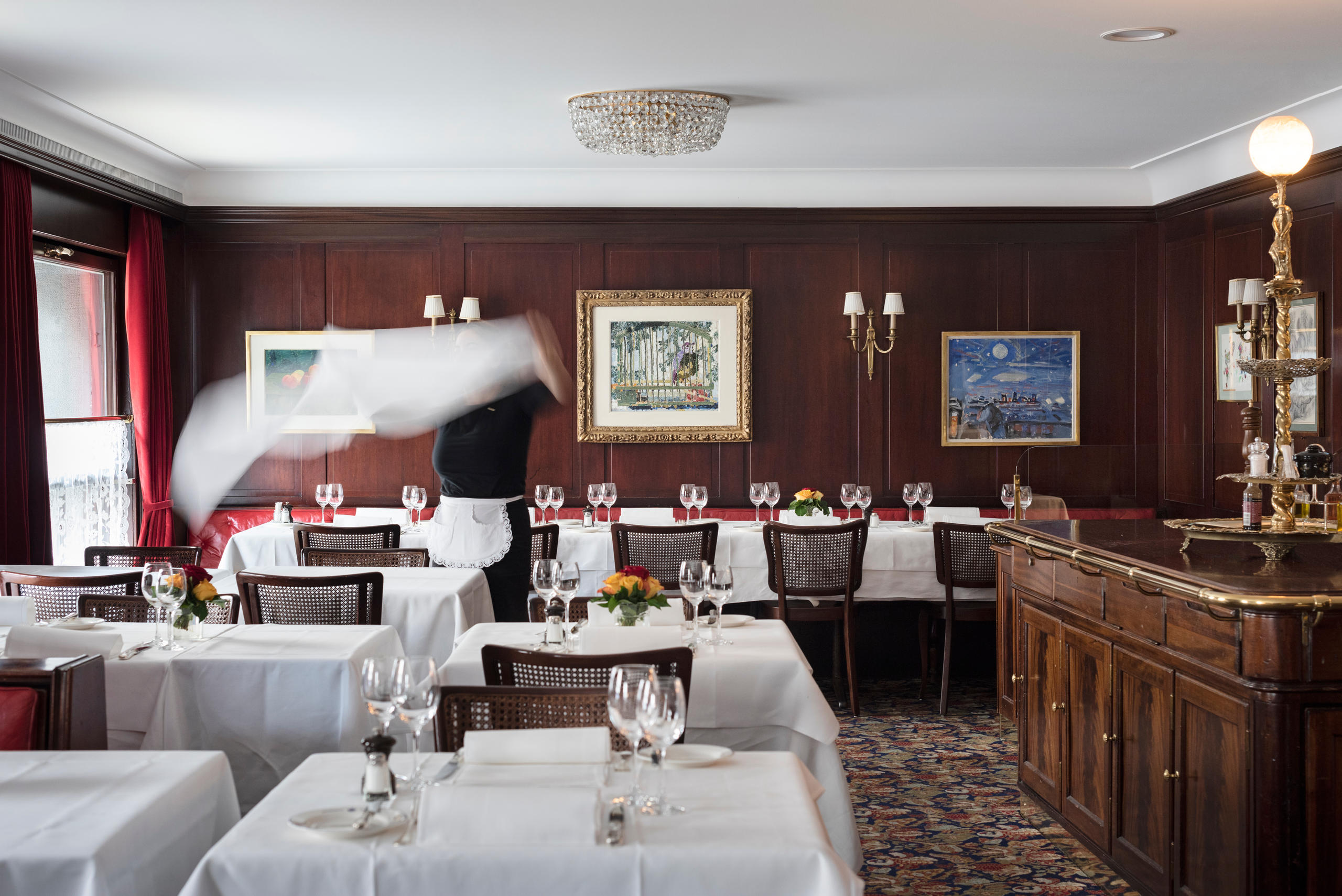
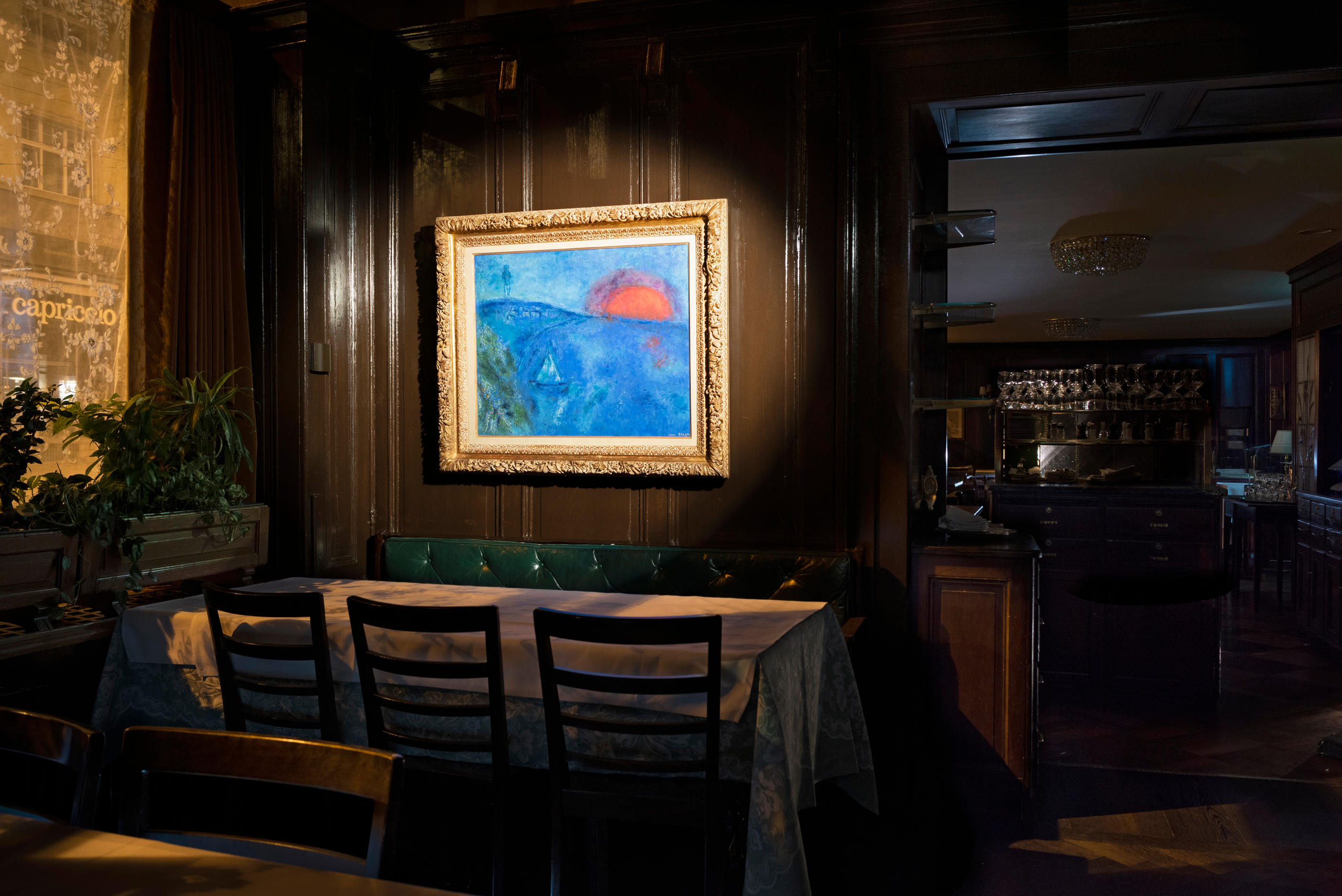


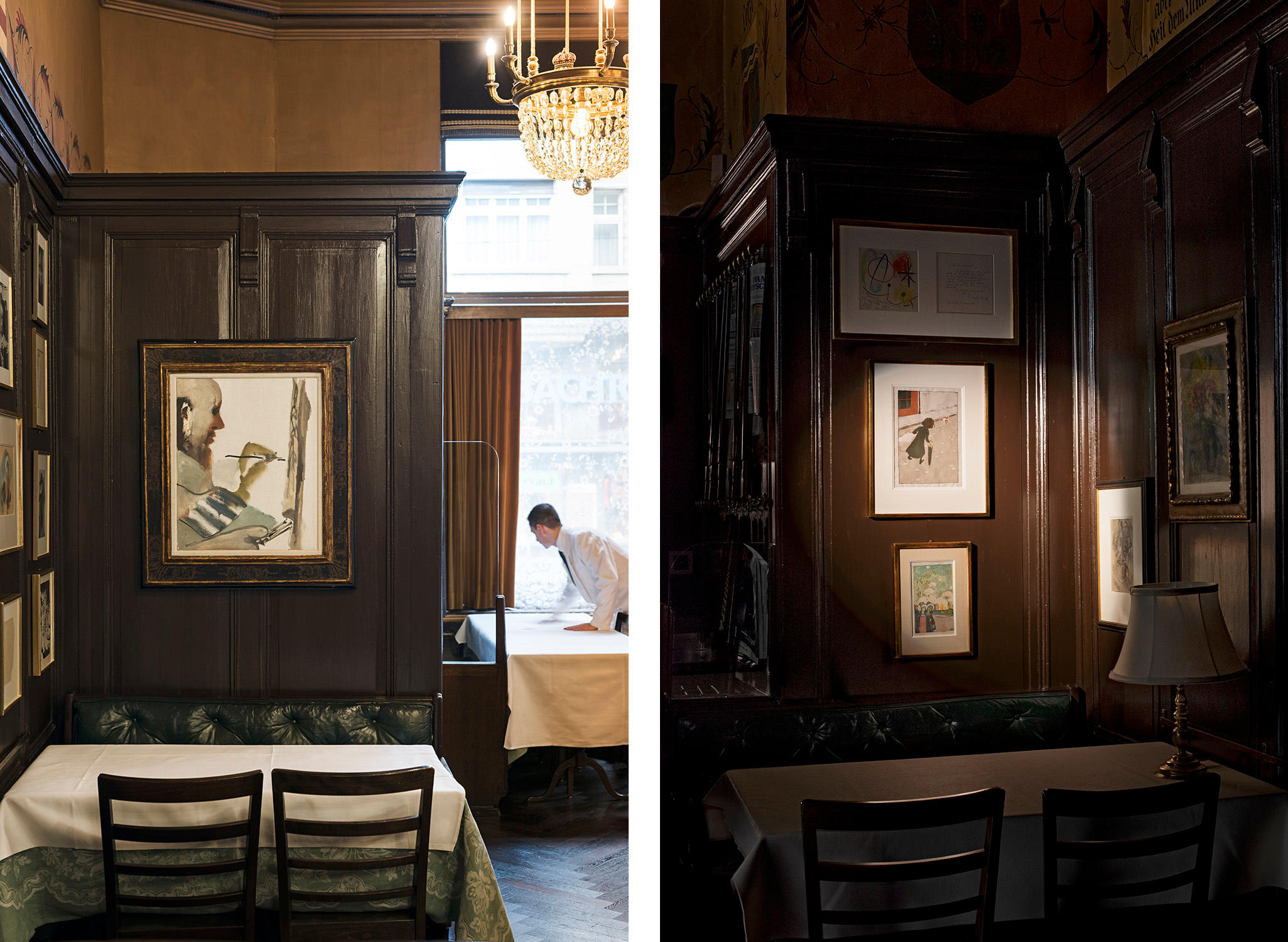


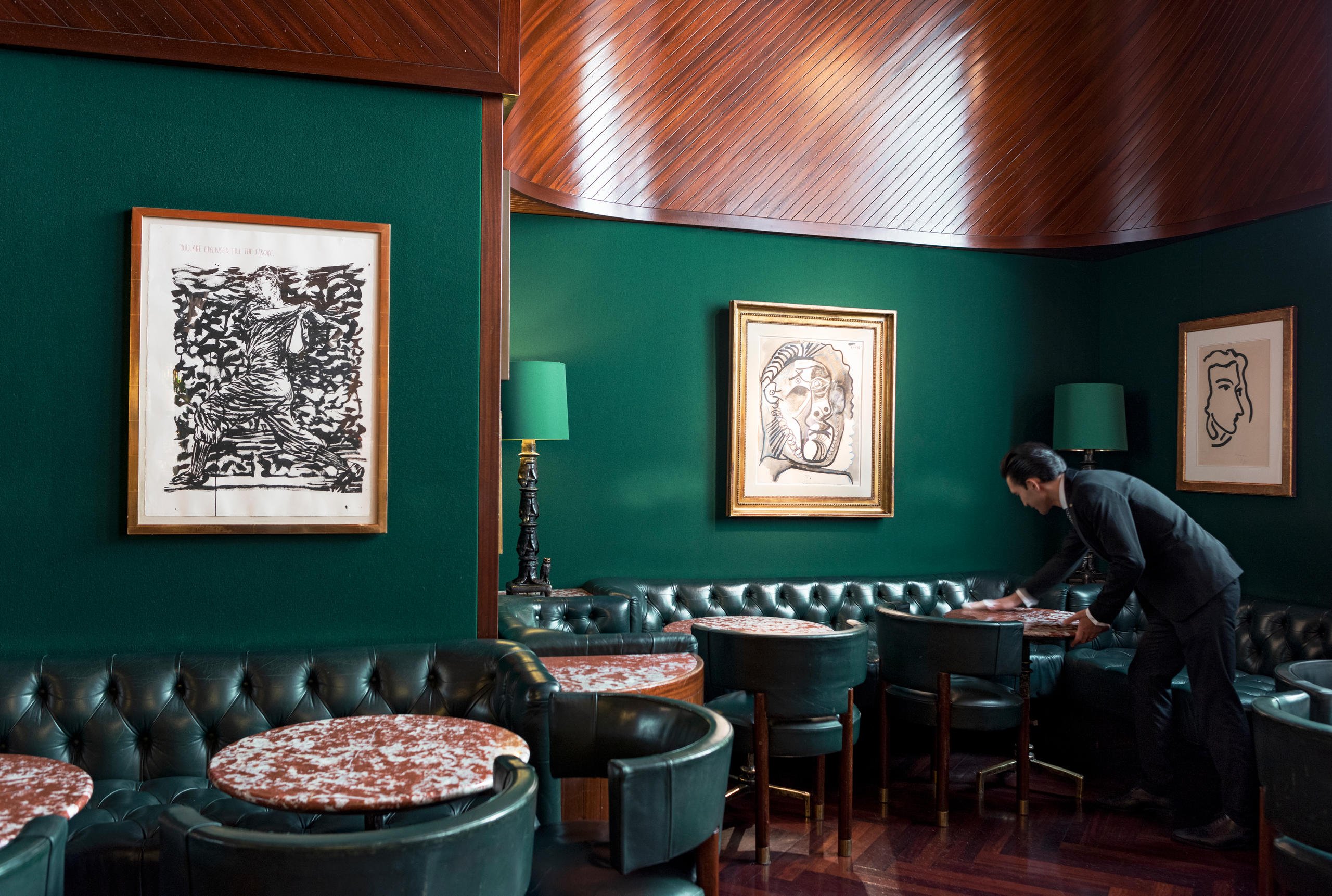
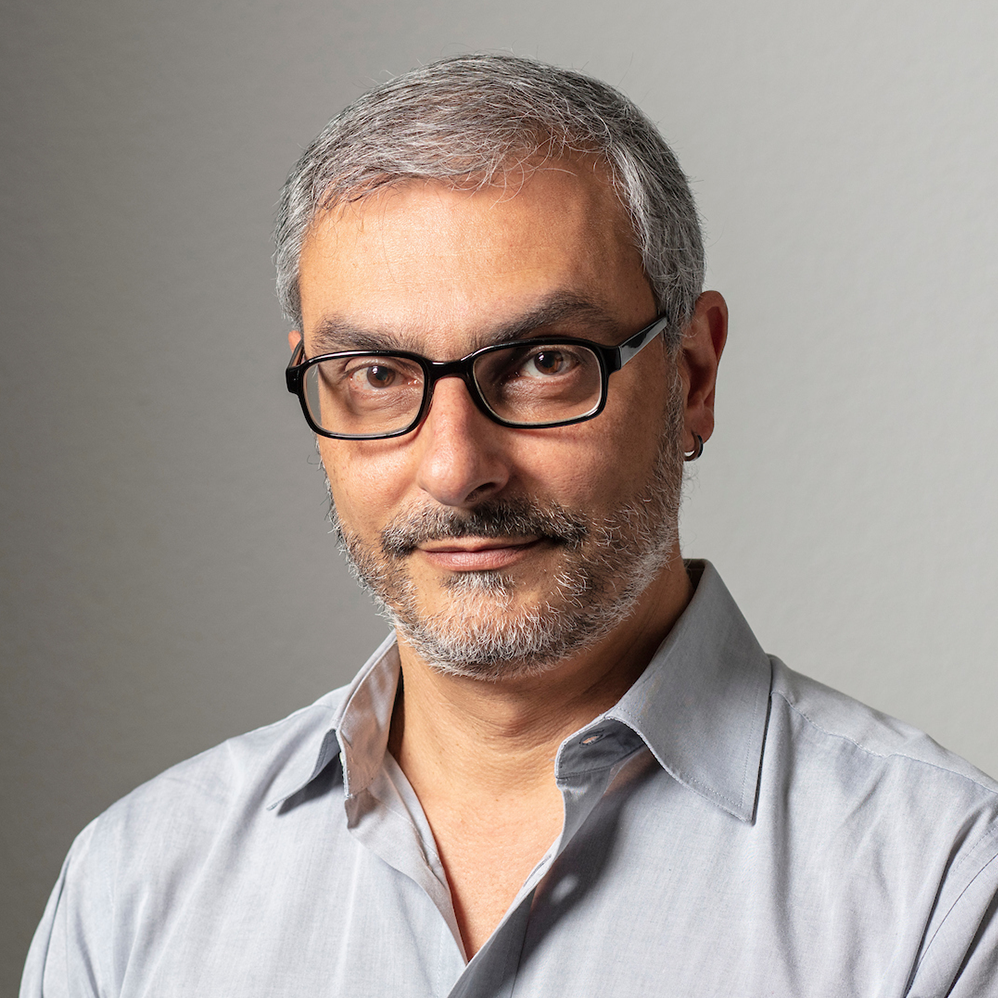




You can find an overview of ongoing debates with our journalists here . Please join us!
If you want to start a conversation about a topic raised in this article or want to report factual errors, email us at english@swissinfo.ch.